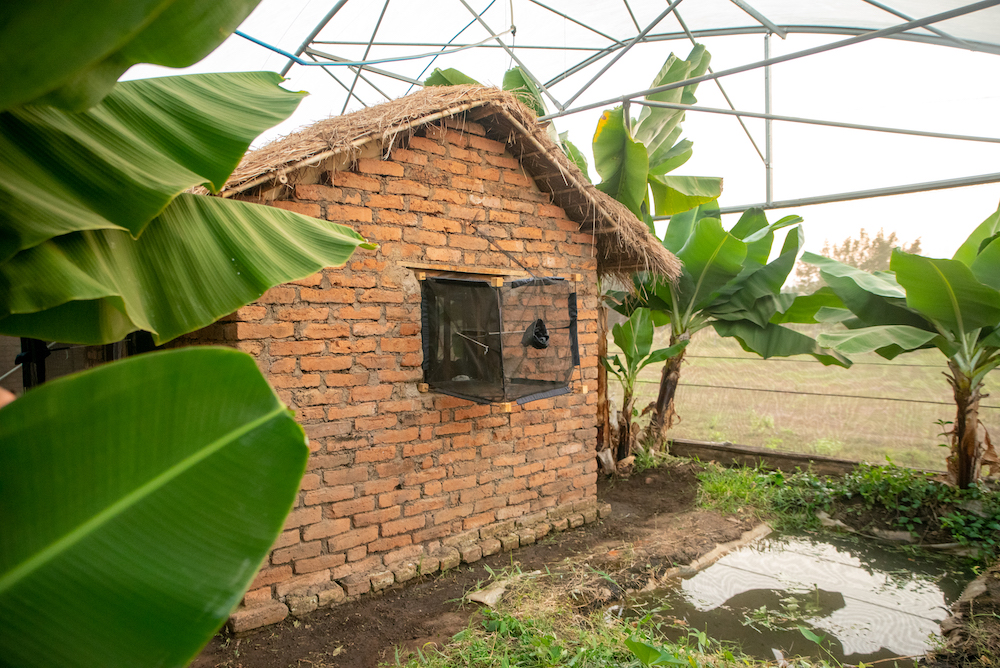AESA PROGRAMMES
- Building R&D Infrastructure
- Developing Excellence in Leadership, Training and Science in Africa (DELTAS Africa)
- Human Heredity and Health in Africa (H3Africa)
- Africa’s Scientific Priorities (ASP)
- Innovation & Entrepreneurship
- Grand Challenges Africa
- Grand Challenges Innovation Network
- Rising Research Leaders/Post-Docs
- AESA RISE Postdoctoral Fellowship Programme
- African Postdoctoral Training Initiative (APTI)
- Climate Impact Research Capacity and Leadership Enhancement (CIRCLE)
- Climate Research for Development (CR4D)
- Future Leaders – African Independent Research (FLAIR)
- Critical Gaps In Science
- Clinical Trials Community (CTC)
- Community & Public Engagement
- Mobility Schemes: Africa-India Mobility Fund
- Mobility Schemes: Science and Language Mobility Scheme Africa
- Research Management Programme in Africa (ReMPro Africa)
- Science Communication/Africa Science Desk (ASD)
- Financial Governance: Global Grant Community (GGC)
- AAS Open Research
- CARI Programmes
- Evidence Leaders Africa (ELA)

News
Targeting bacteria in mosquitoes for alternative malaria control strategies

165
Targeting bacteria in mosquitoes for alternative malaria control strategies
 Dr Jewelna Akorli, is a Ghanaian Research Fellow at the Noguchi Memorial Institute for Medical Research at the University of Ghana and was a DELTAS postdoctoral fellow at the West African Centre for Cell Biology of Infectious Pathogens (WACCBIP), one of the 11 Developing Excellence, Leadership and Training in Science in Africa (DELTAS Africa) programmes. DELTAS Africa funds Africa-based scientists to amplify the development of world-class research and scientific leadership on the continent while strengthening African institutions. It is implemented through the Alliance for Accelerating Excellence in Science in Africa (AESA), a funding, agenda-setting programme management initiative of the African Academy of Sciences (AAS), the African Union Development Agency (AUDA-NEPAD), founding and funding global partners, and through a resolution of the summit of African Union Heads of Governments. DELTAS Africa is supported by Wellcome and the United Kingdom Foreign, Commonwealth and Development Office (FCDO, formerly DFID).
Dr Jewelna Akorli, is a Ghanaian Research Fellow at the Noguchi Memorial Institute for Medical Research at the University of Ghana and was a DELTAS postdoctoral fellow at the West African Centre for Cell Biology of Infectious Pathogens (WACCBIP), one of the 11 Developing Excellence, Leadership and Training in Science in Africa (DELTAS Africa) programmes. DELTAS Africa funds Africa-based scientists to amplify the development of world-class research and scientific leadership on the continent while strengthening African institutions. It is implemented through the Alliance for Accelerating Excellence in Science in Africa (AESA), a funding, agenda-setting programme management initiative of the African Academy of Sciences (AAS), the African Union Development Agency (AUDA-NEPAD), founding and funding global partners, and through a resolution of the summit of African Union Heads of Governments. DELTAS Africa is supported by Wellcome and the United Kingdom Foreign, Commonwealth and Development Office (FCDO, formerly DFID).
Summary
The use of bacteria as an alternative to reduce mosquito populations and block disease transmission is promising. Achieving this requires in-depth understanding of the mechanisms that are influenced by the bacteria associated with mosquitoes, how they can be exploited for disease control, and to investigate these especially in natural mosquito populations.
The role of bacteria in malaria-transmitting mosquitoes
Bacteria are found everywhere in nature, and, in mosquitoes, they play a critical role in various biological processes. Mosquito larvae feed on microorganisms in their aquatic environment and depend on them for development. As they develop into adult mosquitoes, some of these microorganisms are maintained in the mosquito gut for well-being and other important processes such as digestion and reproduction. Research has revealed the integral contribution of bacteria to mosquito susceptibility to disease agents such as Plasmodium and dengue viruses. In fact, the association of mosquito well-being with microbes goes beyond bacteria. It also includes other insect-specific viruses and fungi. However, the focus is on bacteria because they form the majority of the network of microbes, termed the ‘microbiome’.
For these reasons, several studies are being conducted to clearly identify the bacteria that can be most effectively used for disease control, by learning how these bacteria function in mosquitoes and how they disrupt development of the parasite.
Researching bacteria in mosquitoes in Ghana
This study focuses on the mosquito subspecies Anopheles in Ghana, to begin to tease out how their naturally occurring bacteria are contributing to their ability to transmit diseases. The ultimate goal is to translate laboratory findings and field feasibility studies into information that can be utilised as a control mechanism for mosquito-borne diseases.
Anopheles gambiae mosquitoes in Ghana were screened for their bacterial diversity, demonstrated seasonality and location -- all important determinants of bacteria community structure (PMID: 27322614) which must be considered in bacteria-mediated control strategies. Concerns have been raised that laboratory-bred strains may not accurately represent natural interactions among bacteria, parasites and mosquitos. This is because mosquito gut microbiota diversity is significantly lost during laboratory colonisation. This research tested the ‘field-water replacement’ method used in laboratory breeding (PMID: 30635018) to improve translation of results from laboratory to natural populations.
Impact
- This study promises to lead to the discovery of alternative mosquito and disease control approaches in the face of increasing insecticide resistance to current chemical-based methods.
- The tools used in this study can be extended to other vector-borne diseases for similar application to disease control.